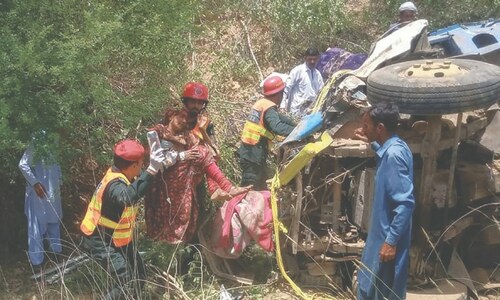WASHINGTON, June 21: India, Pakistan and Israel should be included in any talks held to make new adjustments to the nuclear non-proliferation regime, Mohamed ElBaradei, director general , International Atomic Energy Agency told a conference in Washington on Monday.
Addressing a two-day conference at Washington's Carnegie Endowment, Mr ElBaradei said if the three de facto nuclear states were kept out of such negotiations, all efforts to contain proliferation will fail.
"Any new adjustment to the regime must include India, Pakistan and Israel at the negotiating table. Without their inclusion in and commitment to this broad non-proliferation and security reform, our efforts will fail," he told a gathering of 600 prominent non-proliferation experts from across the world.
"If you have countries - like India, like Pakistan - out of the system, I don't think that's the right approach. I think you need to get everybody. But also, it should not be perceived as a 'us versus them' (approach)."
None of the three states has joined the Nuclear Non-Proliferation Treaty and their development of nuclear weapons or nuclear weapon capability has been outside of the current non-proliferation regime.
"Yet their status as known or presumed holders of nuclear weapons has clearly contributed to tensions in their respective regions," he added. Mr ElBaradei said the logical point for bringing India and Pakistan into the arms-control process would be as part of a global disarmament roadmap.
Israel, he said, could also be brought into this arrangement as part of a new security and disarmament structure in the Middle East that "should and would have to go hand in hand with the peace process in that region."
The IAEA director general said the most "disturbing lesson" to emerge from his agency's inspections in Iran and Libya was "the existence of an extensive illicit market for the supply of nuclear items, which clearly thrives on demand."
He said that the relative ease with which Dr A.Q. Khan and his associates were able to set up and operate a multinational illicit network demonstrated clearly the inadequacy of the present export-control system.
He said it was "extremely worrying" that so many companies and individuals were involved with this network but even more worrying was the fact that "this could occur, apparently without the knowledge of their own government."











































Dear visitor, the comments section is undergoing an overhaul and will return soon.